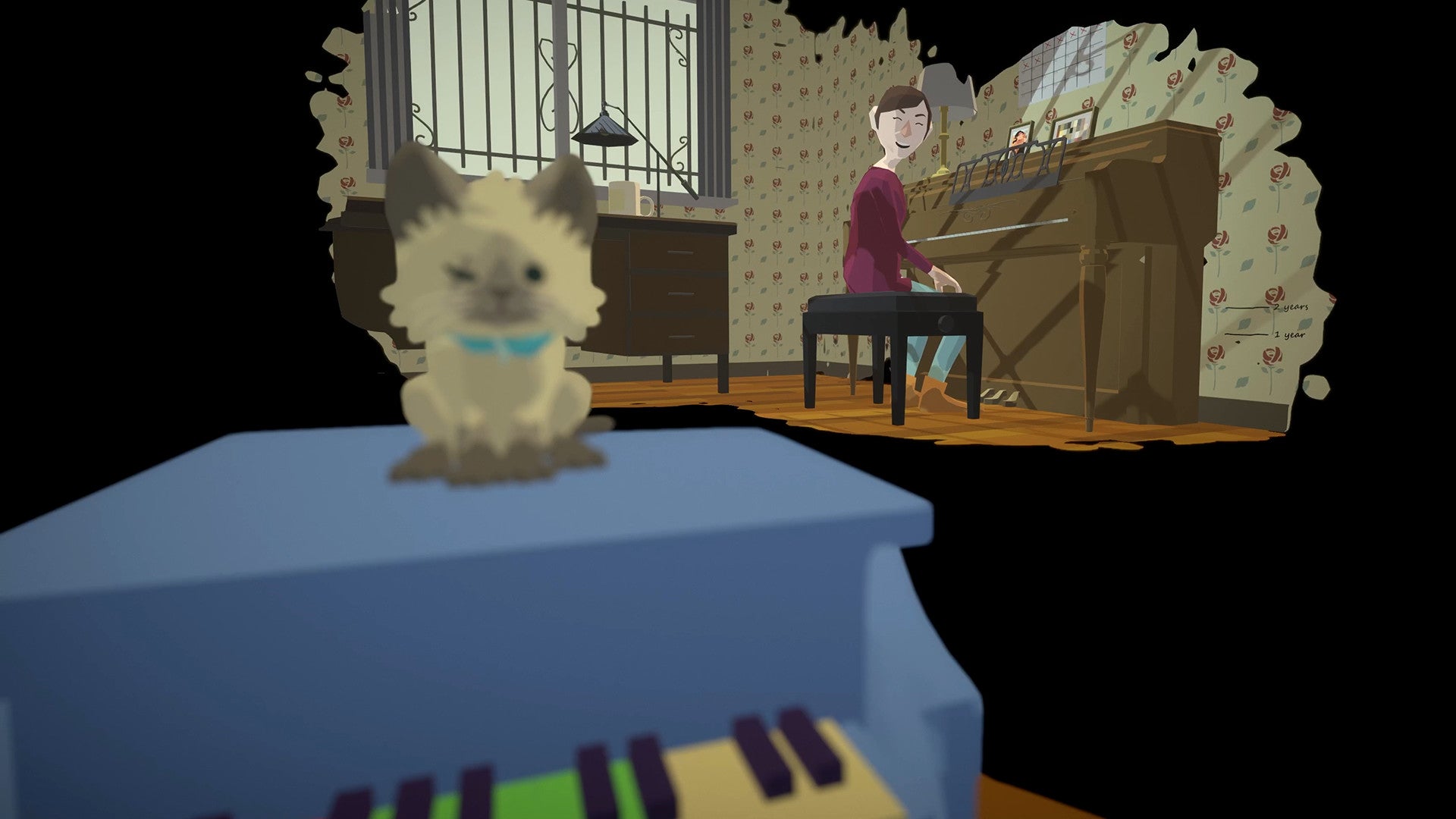I realised quite quickly into my playthrough of Before Your Eyes that I’d forgotten to administer the holy water. And in a game where time skips forward as you blink in real life, I thought I’d royally messed things up. But it turns out that having an allergy actually enhanced the experience. If you’ve got a webcam, Before Your Eyes actually detects if you blink in real life. And it’s tracking is super accurate, which really adds to the immersion. Without spoiling any story stuff, it’s a first-person narrative adventure which tells the tale of a someone journeying through the afterlife; blink and time skips forward. If this sounds super annoying, I promise it isn’t. In fact, this is very much the point. Before Your Eyes accommodates for an automatic bodily function you can’t really control. Every time you blink, you’re whirled forwards in time to an entirely new destination with a different set of circumstances. But it’s far from disjointed. Give it a second and bam, you’ve connected the past to the present with a quick zap of your brain’s electrodes. At first you’ve got this feeling of control. “Oh, well, if I don’t blink, I don’t advance”. But you quickly realise that Before Your Eyes doesn’t punish you for relaxing into your body’s natural rhythm. Let go of the desire to not blink and you flit through your character’s memories as if they’re your own. It mirrors memory recall wonderfully - that act of turning inwards and lightly touching on experiences and emotions as they drift downstream. But sometimes, Before Your Eyes presents you with a scenario where you desperately don’t want to blink. Where you suddenly grab the leash you’ve flung on the floor and yank as hard as you can to keep your lids from closing. Often it’s to preserve a significant memory or story beat that you want to live out - just - for - one - second - longer! Gah. My stinging eyes didn’t help things here, either. I’d last no time at all before I’d blink and advance time against my own will. At first I cursed the pollen and the dust for doing this to me, but I soon realised these micro-particles had helped me understand Before Your Eyes a bit better. So there’s me: my eyes watering and shutting and opening and scenes advancing forward at a blistering pace. Then suddenly I’m plopped into one which holds greater weight, I can just tell. Just like a particularly vivid memory, it feels warmer, as if I’m at ease being there. Characters present me with choices and I can blink to steer the narrative in a direction I want. Then it settles even further. Perhaps nothing much happens. Maybe I’m in a car and I’m listening to a conversation that doesn’t need my full attention. Trees whizz past, the sound of the radio floats out of the open window, and I’m observing the dynamic of the two peoping in the front. Occasionally Before Your Eyes gives you these chances to relish mundane moments - so long as you don’t blink. And it was during these incredibly normal memories that I fought my hardest battle. My stinging eyes added a physical pressure to proceedings. Like I was more aware that my time with this memory was limited, and yet I simply enjoyed being present with them, even after I’d gleaned the important bits. Then before I knew it, my eyes would burn, I’d blink before I’d like to, and then I’d vanish. This heightened feeling of being at the whim of my body’s urges was what Before Your Eyes was going for anyway, right? This idea that memory can be difficult to grasp. You want to hold onto some memories more than others, or some will gradually fade. You might turn inwards to your burbling stream of thoughts, only to find that one memory you hold dear glides past a bit quicker than it did before.

